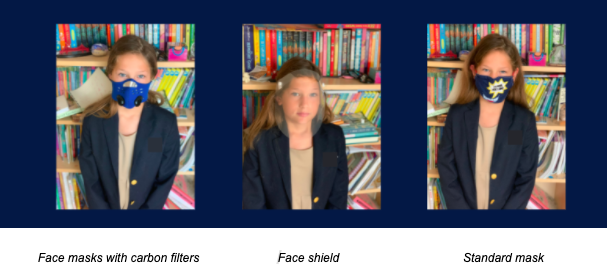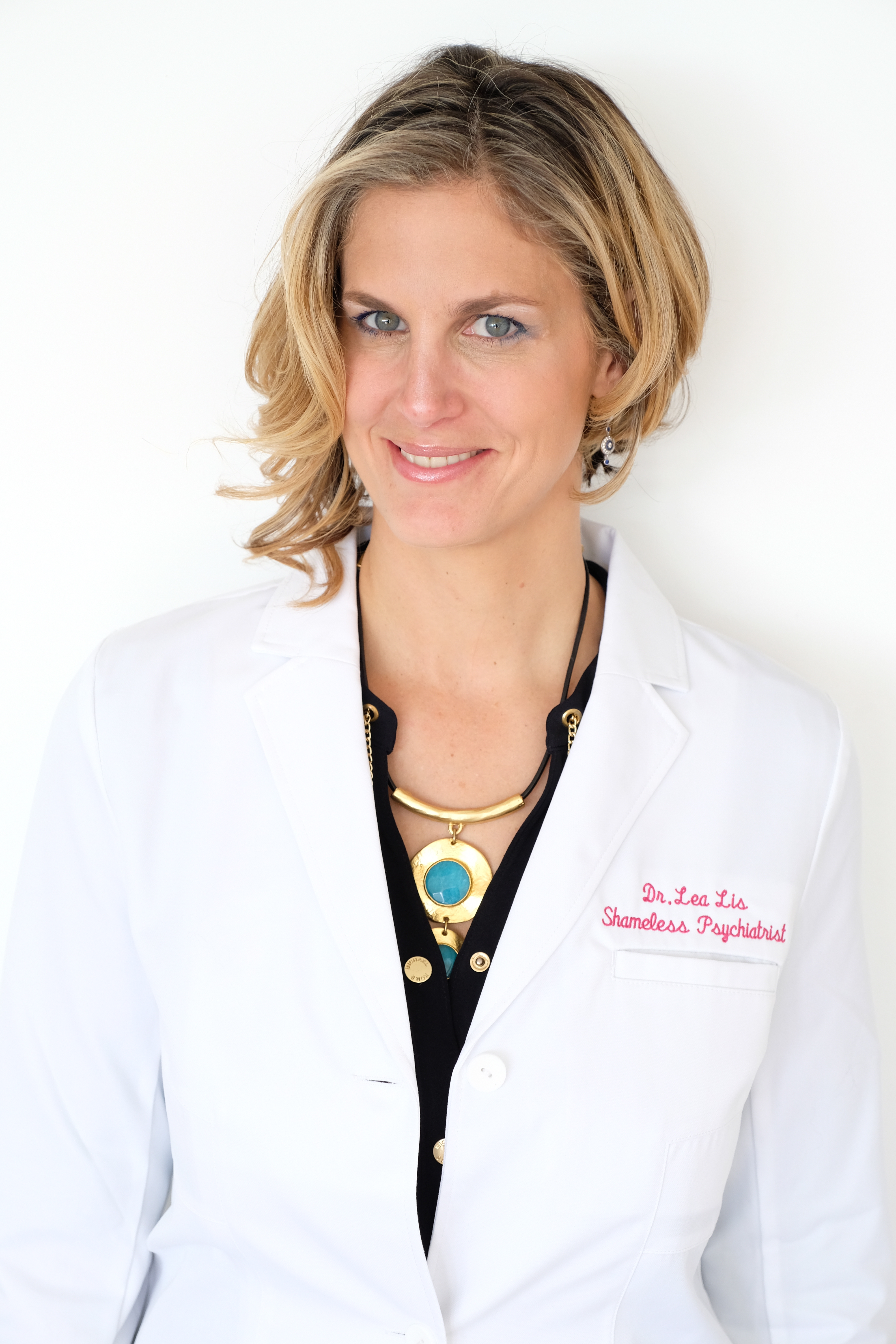Back to school? Back to camp? What is the best option to protect your child, while still allowing them to have the best experience when engaging with other children during the pandemic? There are many options being touted – N95 masks, face mask, shields and beyond.

There are many mask options Source: Dr. Lea Lis
Let’s take a look at all of the options.
Face masks provide some protection against catching the virus, but certainly not a lot unless they are N95. They do provide significant protection against spreading the virus, hence why it is recommended. If you put a piece of nylon (stockings) over the mask, then it offers some real protection. You can take any surgical or cotton mask and cut a 10 inch-piece of pantyhose (nude color is the best for looks) from the thigh (queen size is better for more comfort and magic).
Testing showed that a common mask went from blocking out 75% of small particles to 90% with the addition of a pantyhose overlay. By comparison, a N95 respirator—which is designed to create a tight seal around the face—blocks out at least 95% of small particles when worn properly. Then you can offer your child real protection, but at a cost. This looks very strange and may not be all that comfortable, as nylon stockings are not very breathable. This might be a great option for very high-risk environments, like plane travel.
Face masks with carbon filters are way more comfortable and offer an added layer of protection compared to regular cloth masks. These are way more breathable and offer protection against infection. The issue with these masks is they offer protection when breathing air in, but not as much for air going out. This may place others at risk if you are sick. Also, you can not wash the carbon filters and they must be periodically replaced.
Another great option? A face shield for school or camp is very appealing for many reasons. First of all, you can see the child’s whole face. Non-verbal communication is very important in children as they are developing their social skills for all children, especially for autistic children. They are also way less stuffy to wear especially in warmer or humid climates.
According to an article in JAMA, face shields are easily cleaned and offer eye protection (COVID can go into the eyes as well as the mouth). In a simulation study, face shields were shown to reduce immediate viral exposure by 96% when worn by a simulated healthcare worker within 18 inches of a cough. There have not been head-to-head trials for face masks (non-medical grade) versus face shields, but we can assume similar protection. This is less than a N-95, but offers a modest amount of protection which is brought up substantially by staying six feet away.
So what’s my advice? The best solution depends on the situation!
At school, where non-verbal communication is very important, where children may be eating in the classrooms, and for the comfort factor: a face shield may be preferable. However for higher-risk environments when you cannot stay six feet away, masks and face shields can be worn. Putting a nylon stocking over the mask gives it that extra layer of protection, which is my recommendation for high risk environments like planes where you are indoors with many people and recycled air (winter is coming). article continues after advertisement
So, you have a new item for that back to school list this year. I recommend you order early to prevent the back to school rush.
===
Dr. Lis is the author of No Shame: Real Talk With Your Kids About Sex, Self-Confidence, and Healthy Relationships. As a New York City Psychiatrist, Dr. Lea Lis offers a guide to parents as they seek to help their children through the maze of sexuality and intimate relationships in the 21st century. In clear, straightforward terms, she lays out the groundwork on which parents can help their kids grow up to enjoy positive sexual experiences, and backs up her arguments with data from the most recent surveys and studies of teen sexual behavior.
Follow Dr. Lis on Instagram @shamelesspsychiatrist
Sign up for her newsletter.

